Sustainability: Coffee growing
Part three of four: In an ever-changing world, what are we trying to sustain?
Conventional coffee importing practices and supply chains are inherently riddled with a multitude of social and environmental detriments. Often, these hidden implications are disguised so well by corporate interests that the average coffee drinker is entirely unaware of the human and environmental degradation that contributed to that seemingly harmless morning cup of coffee. Here is where our roaster, Caravan Coffee, and Paul Allen come into play.
Paul is Caravan’s Green Coffee Buyer and Quality Grader and he is tasked with ensuring that all of Caravan’s coffee beans pass through what they call their ‘S.E.T filter,’ or, their social, environmental and traceability filter. Additionally, each farm that Caravan buys from has their own set of social and environmental standards, meaning the coffee beans that are coming through Le Petit Bistro’s doors and into your cups have been socially and environmentally screened to the utmost degree. These filters are vital in ensuring that Le Petit Bistro serves its customers coffee that benefits and uplifts communities and co-ops that depend upon coffee farming for their livelihoods rather than dominant profit-driven monopolies.
Socially conscious coffee supply chains translate to sustainable and environmentally friendly coffee growing practices, as well. Almost all of the farms that Caravan sources from utilize shade-grown coffee farming techniques rather than sun-grown techniques. The environmental and human benefits of shade-grown coffee are unparalleled when compared to the impacts of sun-grown coffee. Sun-grown coffee farming is an incredibly destructive form of coffee growing. The mono-cropped beans are grown in direct sunlight, meaning that before they can be planted huge swaths of forests must be clear cut first. While sun-grown beans do grow faster and at higher yields, this tradeoff for increased profit margins results in increased water, pesticide and fertilizer use, depleted soil, destroyed forests and an overall lower quality of coffee bean. On the other hand, shade-grown coffee is a traditional way of farming coffee beans that only further enhances and supports the biodiversity of the surrounding ecosystem. Shade-grown coffee is grown under the existing canopy of tree cover and requires significantly less water and fertilizer. While shade-grown coffee does grow at a slower rate than sun-grown beans, this longer growing period allows for richer and bolder flavors to develop within the beans (https://www.thecalltoconserve.com/blog/coffee). This results in the superior grade of coffee beans that Caravan is known for. This notable difference in quality also allows the farmers and their communities to gain economic advantages when it comes to ethical, sustainable and top-notch coffee markets. We are deeply honored to support the growth and vitality of these tight-knit communities.
Now that we have discussed what we will be eating and drinking at Le Petit Bistro, next time, for the fourth and final installment in this blog series, we will be taking a closer look at what exactly we will be serving our food and beverages in.
Cheers!

